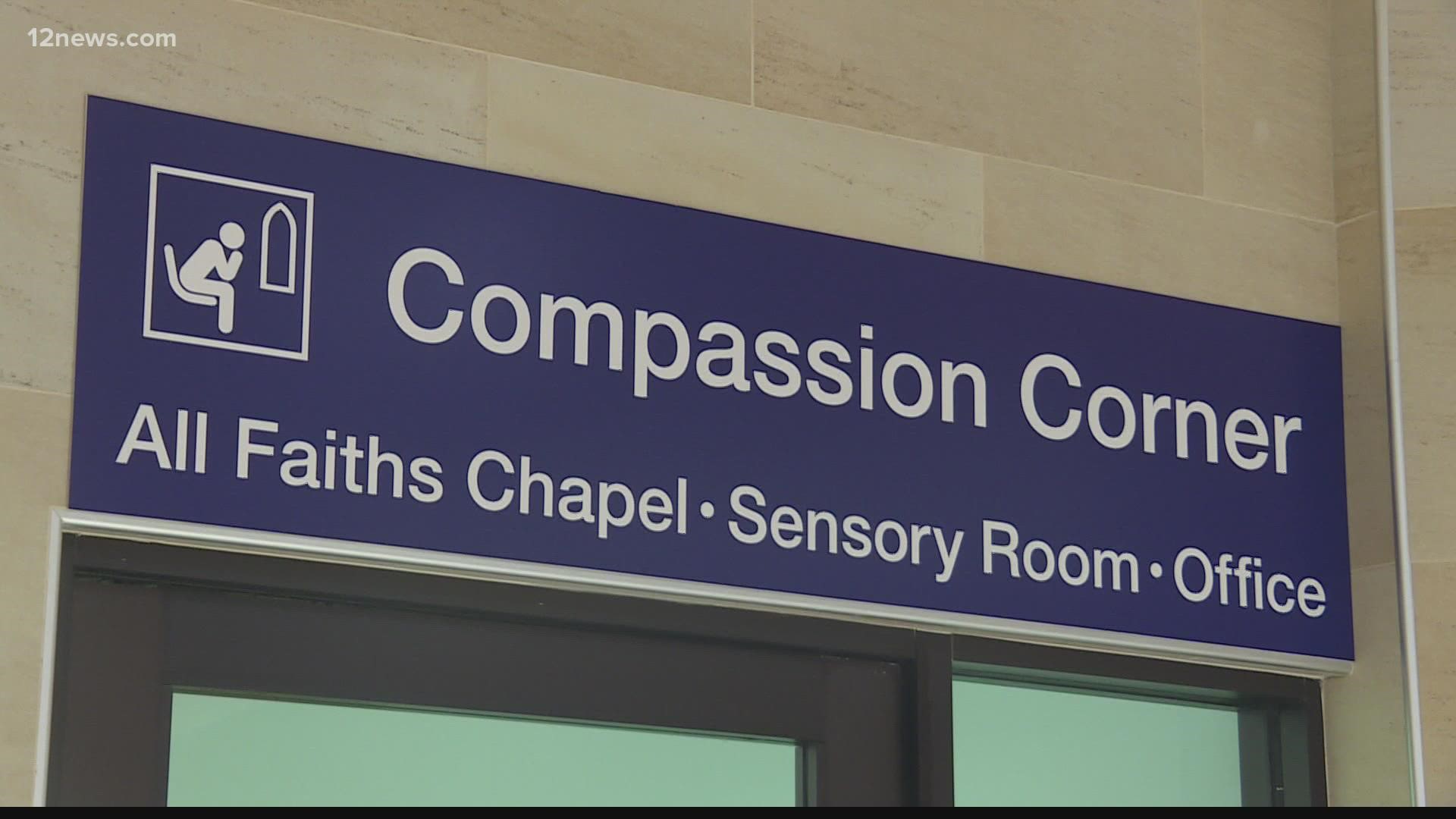PHOENIX — Navigating through an airport can be overwhelming for any traveler, and it can be a frightening experience for a person living with dementia.
“I think it would start with confusion and realizing he was confused. He would probably forget why he was there. Where he was going. Where somebody he knew was. Why is he alone,” Lisa Britt said of her father.
Britt’s 77-year-old father James has Alzheimer’s. He never travels alone, but one challenge is trying to preserve his dignity and not bring undue attention to his illness.
“My dad was busy emptying his pockets. I leaned over [to TSA personnel] and whispered really fast ‘my dad has Alzheimer’s, and we can’t be separated,'” Britt explained. “Immediately, the guy got on a walkie-talkie radioed someone to escort us together to a separate screening area.”
The TSA at Phoenix Sky Harbor Airport discreetly moved them from an area that can be stressful for travelers trying to move fast while accommodating the security process. It's something Britt was grateful for.
“They didn’t make my dad feel uncomfortable. My dad wasn’t even aware that they were doing that,” Britt explained.
Sky Harbor is now "Dementia Friendly" which should make it even easier for those with dementia to travel.
“This is our compassion corner,” Misty Cisneros-Contreras explained, the customer service manager at Sky Harbor.
The Compassion Corner is located on the third floor in Terminal 4 next to the elevators.
It’s where the chapel and sensory room are located. Dementia travelers and their caregivers can get access to resources and pick up a green lanyard with cacti print at the compassion corner. The lanyard helps identify the person as having a non-visible disability.
“Our employees will see that and know they have to offer a little more patience and maybe provide different instructions.”
Visitors can pick one up at the Compassion Corner office or register ahead of time at https://www.skyharbor.com/ShopsFoodServices/services/compassion-corner
“We currently have five million, over five million Americans struggling with this disease and those numbers are expected to rise,” Dr. Anna Burke explained. She's the director of the Alzheimer’s and Memory Disorders Program at Barrow Neurological Institute.
Burke said with these changing conditions it is important to preserve their quality of life.
“People can become more confused. They can become more anxious. In some cases, they can become more agitated in those types of situations,” said Dr. Burke. “We need to create experiences for them so they can be successful and continue to live their lives.”
The Barrow Neurological Institute has tips for traveling with a loved one with dementia
Britt and her father will be traveling soon and plan to take advantage of Sky Harbor’s "Dementia Friendly" initiative.
“Nobody has to worry about saying anything and preserves my dad’s dignity and sense of independence,” Britt said.
Up to Speed
Catch up on the latest news and stories on the 12 News YouTube channel. Subscribe today.

